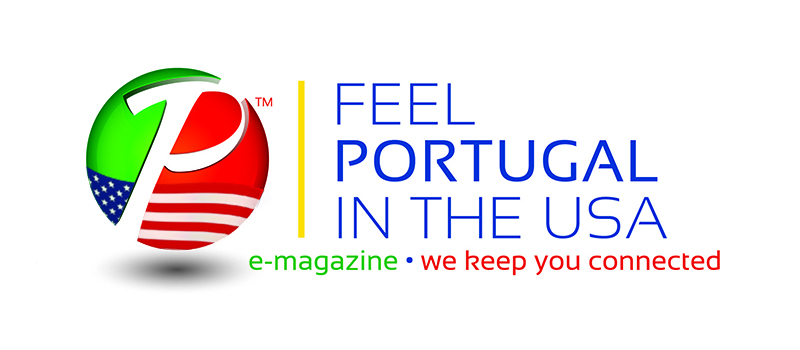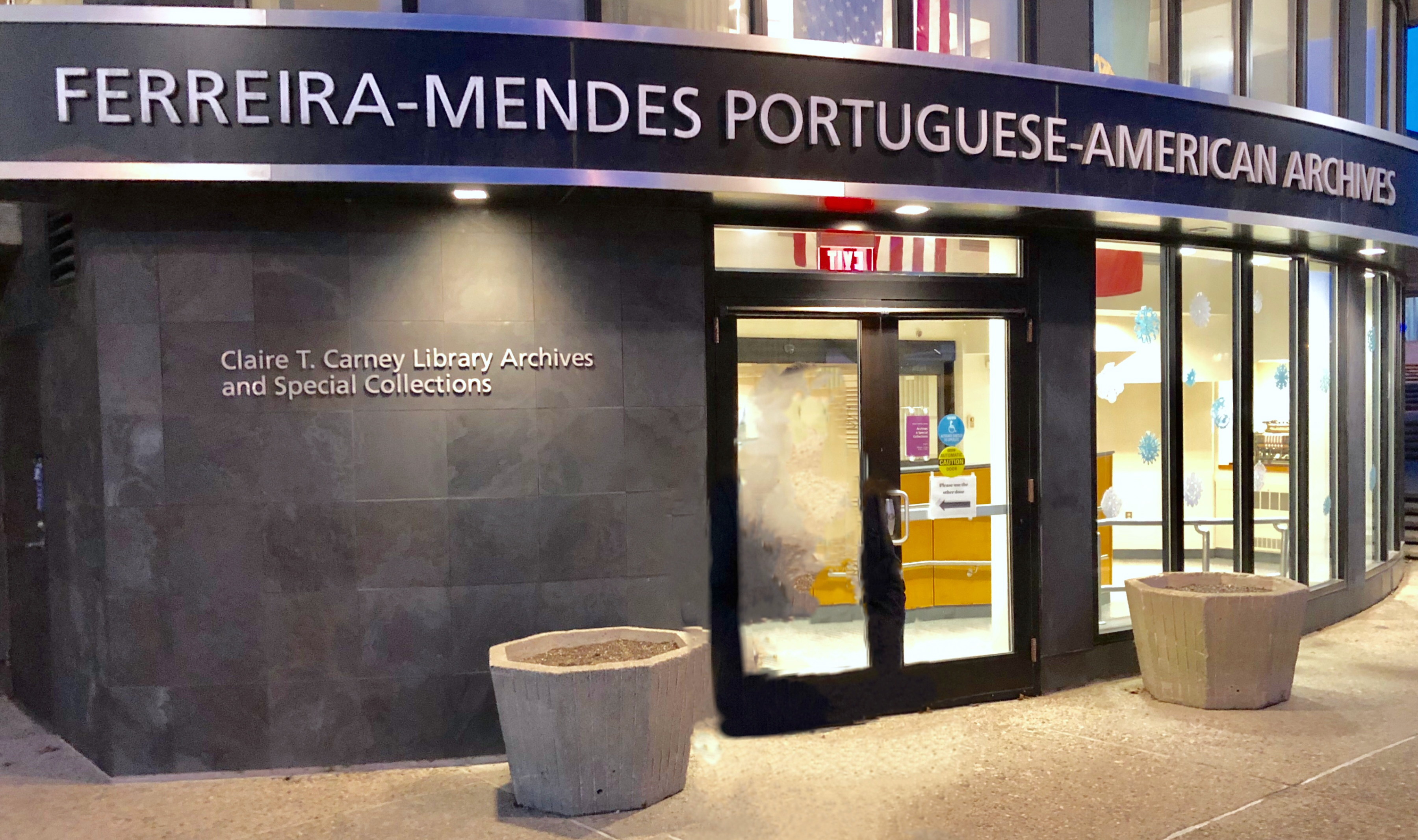There are quite a few differences from the past in Portuguese immigration to the United States.
Historian and researcher Sónia Pacheco says that current Portuguese immigration to the United States stems from professional reasons and depends on the conviction of a well-defined path, unlike what happened in the past.
Dedicated to documenting “the immigration experience” of Portuguese immigrants to the United States, Sónia Pacheco, head of the Ferreira Mendes Library and Portuguese-American Archives at the University of Massachusetts at Dartmouth, tells Lusa that “the type of work that attracts a settled person has changed.
“The Portuguese, nowadays, don’t come after just any job. Those who immigrate to the United States (…) already come with a job offer or come looking for opportunities, but in a particular area,” thus, the Portuguese are now settling in other states that traditionally hadn’t received so many Luso-Americans.
The archivist and librarian point out that “people used to come where they had relatives or acquaintances because they wanted to maintain that connection with the Portuguese community, but also because it would be easier to get a job where there were people they connected with.
“For better or worse, people don’t get jobs that way anymore,” adds Sónia Pacheco, stressing that immigration to the United States is now a “very intentional movement,” which is defined and “proactive,” and is only decided when there is concrete information about what to do.
Nowadays, engineering specialists may find themselves more attracted to go to Texas, for example, which is rich in oil, and where “Elon Musk changed everything related to the car industry,” points Sónia Pacheco.
Born on the island of Terceira, Azores, Sónia Pacheco has lived in Canada since she was 9 years old, in Oakville, where her mother’s family lived.
She studied in Toronto and worked as a librarian and archivist in Canadian public libraries, such as Toronto Public Library and Hamilton Public Library before she became librarian and archivist for the Ferreira Mendes Portuguese American Archives at UMass Dartmouth University, a position she has been holding for more than 12 years.
Also, the historian, Sónia Pacheco told Lusa that there are quite a few differences from the past in Portuguese immigration to the United States.
Some of the reasons for this are the complicated politics in the United States, the slow process of acquiring work permits in the country, the fact that citizenship is more complicated than before, and new opportunities within the European Union and other parts of the world.
In the late 19th and early 20th centuries, Portuguese immigration to the United States was associated with work in fishing and whaling in coastal areas and with the industrial revolution, especially in textiles, but came to an abrupt end in 1924 when a U.S. law limited the number of immigrants admitted.
The Capelinhos volcanic eruption in Faial, Azores in 1957 sparked a new wave of Portuguese immigration to the US, which led hundreds of thousands of people to start their lives over in the United States between 1960 and 1980, stimulated by the Azorean Refugee Act and the new rules that benefited the reunification of immigrant families.
“It’s much easier, nowadays, for a person to settle in a place where they don’t have anyone they know and keep in touch with what’s familiar. It costs almost nothing to call Portugal or other states,” stresses Sónia Pacheco, in addition to the fact that social networks also allow people to be connected with relatives, friends, or colleagues.
“I remember only talking to my grandmother in Canada once a month because the cost of the phone call was astronomical and she was the one who used to call us. That reality no longer exists,” she recalls.
- Fadista Sara Correia Performs at 2023 Lowell Folk Festival
- An Evening of Fado with Maria Emília and Helder Moutinho in Lowell, MA
- Fado Museum, in Lisbon, inaugurates “Celeste” exhibition, a tribute to fado singer Celesta Rodrigues (1923-2018)
- INTERVIEW: “Ice Merchants” Producer Needs Funding for Final Step Toward the Oscars
- Portuguese communities in North America reject SATA’s “abusive” prices
The Ferreira Mendes archive, named after the founder of the first Portuguese radio station in the US, Affonso Gil Mendes Ferreira, holds an extensive collection of materials, documents, books, newspapers, postcards, and photographs related to the collective experience and history of Portuguese immigration in the United States.
The archive has grown with donations from Lusodescendents, but also through the work of Sónia Pacheco who is able to identify and appeal to “individuals, businesses, agencies or institutions that have connections to the Portuguese community.”
The Ferreira Mendes archive does not document the entire Lusophone community, since the material related to the former colonies is directed to those countries’ own archives: “The colonial relationship
Artigo em Português
Razões profissionais e planos concretos por trás da nova imigração portuguesa para os EUA
Há bastantes diferenças com o passado no que respeita à imigração portuguesa para os Estados Unidos.
A historiadora e investigadora Sónia Pacheco afirma que a atual imigração portuguesa nos Estados Unidos deriva de razões profissionais e depende da convicção de um percurso bem definido, contrariamente ao que acontecia no passado.
Dedicada a documentar “a experiência da imigração” de portugueses para os Estados Unidos, a responsável da biblioteca e arquivo lusoamericana Ferreira Mendes, da Universidade de Massachusetts em Dartmouth, Sónia Pacheco, diz à Lusa que “o tipo de trabalho que atrai uma pessoa radicada já mudou”.
“Os portugueses, hoje em dia, não vêm atrás de qualquer trabalho. Quem imigra para os Estados Unidos (…) já vem com oferta de trabalho ou vem à procura de oportunidades, mas para uma área muito específica”, pelo que os portugueses estão agora a fixar-se em outros estados que tradicionalmente não recebiam tantos luso-americanos.
A arquivista e bibliotecária destaca que “antigamente as pessoas vinham para onde tinham familiares ou conhecidos, porque queriam manter aquela ligação com a comunidade portuguesa, mas também porque seria mais fácil arranjar trabalho onde há pessoas conhecidas”.
“Por bem ou por mal, já não se arranja trabalho dessa maneira”, acrescenta Sónia Pacheco, sublinhando que a imigração para os Estados Unidos agora é um “movimento muito intencional”, definido e “pró-ativo”, que só se decide quando se tem informação concreta do que se vai fazer.
Agora, os especialistas em engenharias podem ver-se mais atraídos a ir para o Texas, por exemplo, rico em petróleo, e onde “Elon Musk mudou tudo relacionado com a produção de carros”, aponta Sónia Pacheco.
Nascida na ilha da Terceira, Açores, Sónia Pacheco viveu no Canadá desde os 09 anos, em Oakville, onde a família materna estava radicada.
Fez estudos em Toronto e foi bibliotecária e arquivista em bibliotecas públicas canadianas, como a Biblioteca Pública de Toronto e a de Hamilton, antes de se tornar arquivista e bibliotecária do Ferreira Mendes Portuguese American Archives, na Universidade UMass Dartmouth, um cargo que mantém há mais de 12 anos.
Também historiadora, Sónia Pacheco afirma à Lusa que há bastantes diferenças com o passado no que respeita à imigração portuguesa para os Estados Unidos.
Podem servir de explicação a complicada política dos Estados Unidos, a lentidão da autorização para trabalhar no país, um processo de cidadania mais difícil do que anteriormente e novas oportunidades dentro da União Europeia e outras partes do mundo.
No fim do século XIX e início do século XX, a imigração portuguesa nos Estados Unidos era associada com o trabalho nas pescas e caça de baleias, nas áreas costeiras, e com a revolução industrial, principalmente no setor dos têxteis, mas teve um fim abrupto por força de uma lei norte-americana de 1924, que limitava o número de imigrantes admitidos.
A violenta erupção vulcânica dos Capelinhos, no Faial, Açores em 1957, provocou o início de uma nova onda de imigração portuguesa para os EUA, que terá levado centenas de milhares de pessoas a recomeçar vidas nos Estados Unidos entre 1960 e 1980, incentivados pela legislação norte-americana para refugiados açorianos, “Azorean Refugee Act”, e novas regras que beneficiavam a reunificação de famílias imigrantes.
“É muito mais fácil, hoje em dia, uma pessoa se radicar para um local onde não tem ninguém conhecido e manter contacto com o que é familiar. Não custa quase nada telefonar para Portugal ou outros estados”, sublinha Sónia Pacheco, acrescentando que as redes sociais também ajudam a manter o contacto com familiares, amigos ou colegas.
“Eu lembro-me de só falar com a minha avó no Canadá uma vez por mês, porque o custo do telefonema era astronómico e era ela que telefonava para nós. Essa realidade já não existe”, recorda.
O arquivo Ferreira Mendes, com o nome do fundador da primeira rádio portuguesa nos EUA Affonso Gil Mendes Ferreira, mantém uma extensa coleção de materiais, documentos, livros, jornais, postais ou fotografias relacionadas com a experiência coletiva e a história da imigração portuguesa nos Estados Unidos.
O arquivo cresce com doações de lusodescendentes, mas também pelo trabalho de Sónia Pacheco que identifica e apela a “uma pessoa ou um negócio ou uma agência ou instituições que tem ligações à comunidade portuguesa”.
Não é toda a comunidade lusófona que o arquivo Ferreira Mendes documenta, já que o material relacionado com as antigas colónias é dirigido para arquivos próprios desses países: “A relação colonial já não existe, eles merecem e a gente develhes a sua própria história”, conclui a historiadora.
EYL // JH


